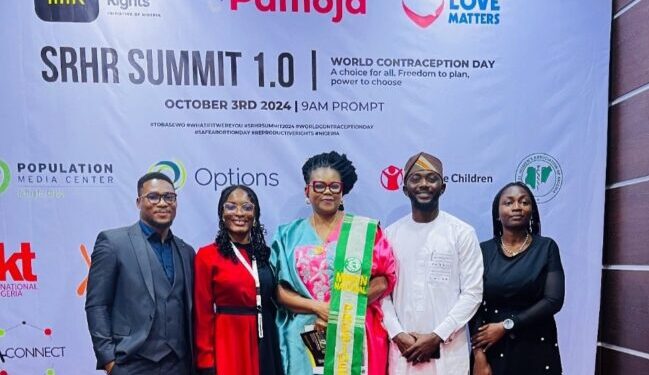World Contraception Day:Experts want contraception free, available to all women

By Joseph Erunke, Abuja
Experts in reproductive health have said contraception should be free and available to all women, regardless of age, disability, or marital status.
They tasked the federal government to increase funding for reproductive health, provide free pregnancy care, and make contraceptive commodities accessible to women.
The reproductive health experts spoke variously at the Sexual and Reproductive Health and Rights (SRHR) Summit 1.0, held to mark the 2024 World Contraception Day in Abuja.
The event which was organised by the Media Health and Rights Initiative of Nigeria, with the theme:“A Choice for All: Freedom to Plan, Power to Choose,” brought together healthcare providers, policymakers, and civil society organisations to address Nigeria’s pressing reproductive health challenges.
The National President of the Medical Women’s Association of Nigeria, Prof. Rosemary Ogu, while speaking,advocated increased funding for reproductive health in the country.
According to her, government should not only increase funding for reproductive health but also ensure the provision of free pregnancy care and accessible contraceptive commodities.
She emphasised the importance of education and demand creation, noting that primary health care centres need to be functional and effectively utilised.
She said:“Contraception reminds us that there’s a strategy to prevent women from dying, enable them to go to school, and help adults reach their full potential. “
Noting that rural communities face significant barriers in accessing family planning commodities, resulting in higher maternal mortality rates, Prof. Ogu called on the government to tackle the challenge by increasing funding for reproductive health, provide free pregnancy care, and make contraceptive commodities accessible.
Also speaking, the Country Director of IPas Nigeria Health Foundation, Dr. Lucky Palmer,
called for universal access to modern contraceptives and comprehensive reproductive health services in Nigeria.
She regretted that there were cultural and systemic barriers hindering access to contraception, especially for vulnerable groups such as adolescents and women with disabilities.
“In Nigeria, we often assume adolescents shouldn’t have sex, so they don’t need contraception. However, contraception should be free and available to all, regardless of age, disability, or marital status,” he said.
Regretting that unplanned pregnancies contribute to over 1,500 maternal deaths annually in Nigeria,he noted that the death rate was easily preventable with access to effective contraceptives.
“Contraceptives can prevent these deaths. It is a fundamental right for all, including adolescents, married women, and young men,” Dr. Palmer emphasized, calling for an urgent overhaul of Nigeria’s reproductive healthcare system to cater to everyone, especially marginalized groups.
On his part, Dr. Ufuoma Omo-Obi, Board Chair of MHR, highlighted the crucial need for accessible healthcare for Nigerian youths, particularly pregnant women, to reduce the country’s alarming maternal mortality rates.
He emphasized that collaboration across sectors is key to ensuring all women have access to contraception, empowering them to take control of their reproductive health and openly discuss challenges related to family planning.
She noted that,”Self-administered contraception, especially injectable methods offering three months of coverage, has been transformative in Nigeria, giving women greater autonomy over their reproductive choices. “
